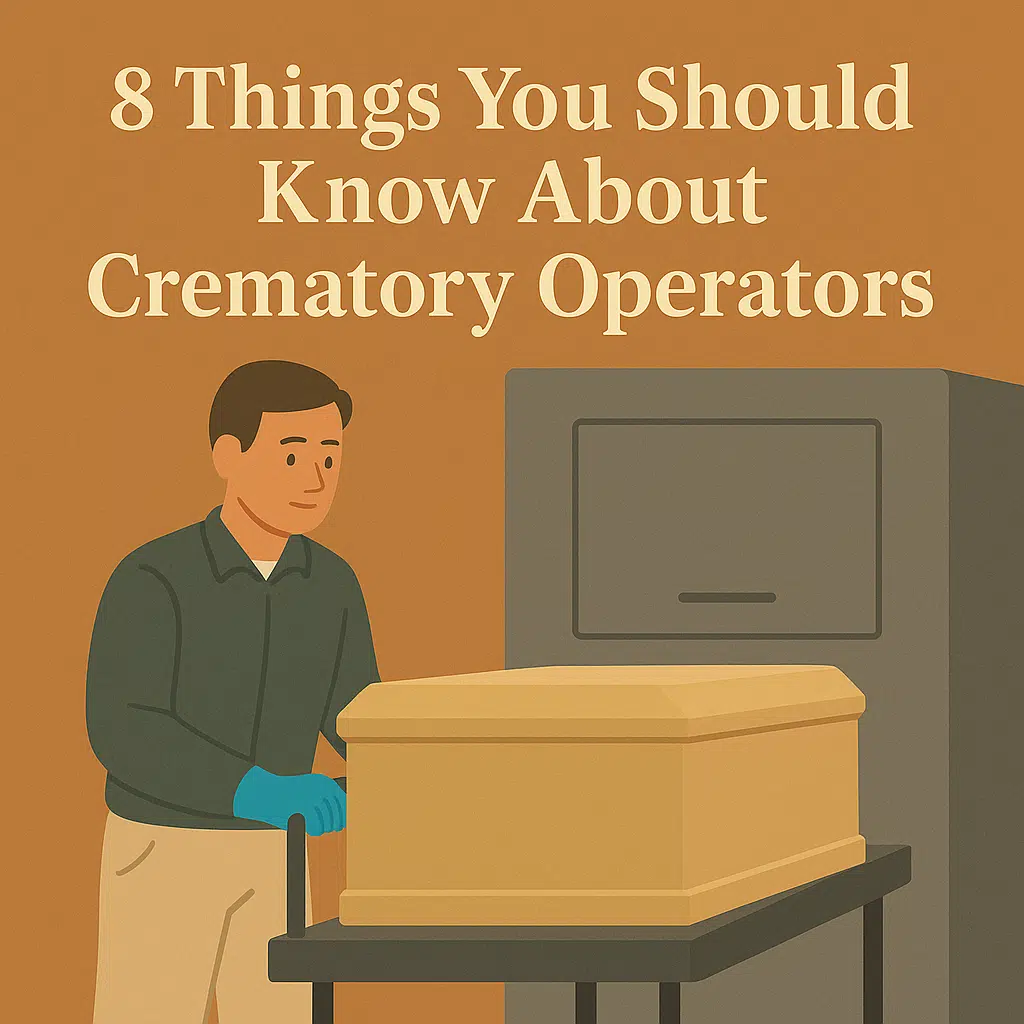Crematory operators are essential professionals in the funeral industry, responsible for the respectful and safe cremation of human remains. Though often behind the scenes, their work combines technical skill, compassion, and adherence to strict regulations. Here are eight important things to know about crematory operators and the vital role they play.
1. They Are Skilled Technicians
Crematory operators manage complex equipment designed to perform cremations safely and efficiently. This requires technical knowledge of combustion science, equipment maintenance, and safety protocols to ensure each cremation is handled properly.
2. Their Work Is Highly Regulated
Operators must comply with federal, state, and local laws governing cremation, emissions, and environmental standards. They maintain detailed records for every cremation to meet legal and industry requirements.
3. They Handle More Than Just Flame Cremation
While traditional flame cremation is the most common, crematory operators may also work with newer methods like alkaline hydrolysis, which uses water and chemicals to dissolve remains in an eco-friendly process.
4. Respect and Professionalism Are Essential
Operators handle human remains with the utmost respect. Their role requires sensitivity to grieving families and a professional demeanor, even though they often do not interact directly with the public.
5. Physical Work Is Part of the Job
The role can be physically demanding. Operators may need to lift or move remains, stand for long periods, and perform routine maintenance tasks on heavy equipment.
6. Certification and Licensing Are Common Requirements
Many states require crematory operators to be licensed and to complete formal training programs. This ensures operators meet safety and technical standards.
7. Work Hours Can Vary
Depending on the facility, crematory operators may work shifts, including nights, weekends, and on-call hours. Flexibility is often necessary.
8. They Play a Vital Role in Final Care
Though their work is largely behind the scenes, crematory operators provide a critical service that supports families and honors the deceased with dignity.
If you have feedback, questions, or ideas for future articles or Information Hubs, please contact us. Your insights help us create valuable content.


